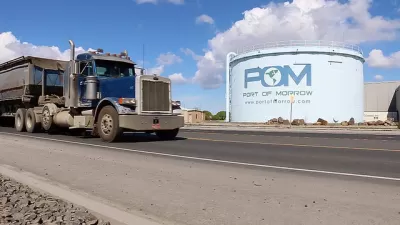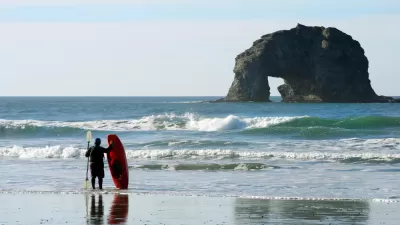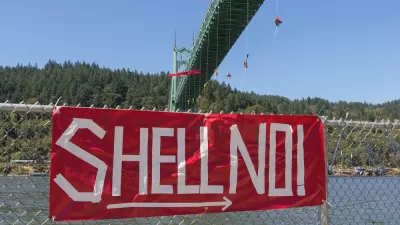Had election results proved favorable in Oregon and Washington, UC Berkley Law Climate Program Director Ethan Elkind suggested that the two states could join California to form a West Coast Climate Bloc. Oregon came through, but not Washington.

"California has largely been 'going it alone' on major climate policy, specifically the state’s carbon trading program through cap and trade," blogged Ethan Elkind, Director of the Climate Program at the UC Center for Law, Energy & the Environment, on Tuesday. "But the election today in Washington and Oregon could change that dynamic and possibly usher in a West Coast climate bloc of states willing to tackle carbon directly," writes Elkind.
At 9:26 pm (PST) on Tuesday night, MyNorthwest.com reported that "Washington state’s carbon fee initiative [1631] will fall short of the needed votes to pass with just 43 percent of votes, according to early counts."
"Meanwhile, Oregon has a chance to enact its own cap-and-trade program next year, as I blogged this summer after attending a legislative gathering at the Oregon coast," adds Elkind.
But it hinges on the current governor, Kate Brown, winning re-election today against a tough Republican challenger, funded in part by Nike founder Phil Knight. If she wins and it passes next year, Oregon could potentially link their program to California’s.
Brown eked out a victory, winning 50 percent of the vote among the six gubernatorial candidates, reported The Oregonian at 8:21 pm. It now remains to be seen if the speaker of the Oregon House of Representatives, Tina Kotek, advances a cap-and-trade (or “cap-and-invest” as they’re calling it) program.
Elkind concludes his blog by writing:
As the federal government experiences division and inaction in the face of the climate threat, multi-state coalitions like along the Pacific Coast could represent a promising step forward to achieve real national progress.
Hopefully, Oregon will be able to join California's carbon trading program. With the passage of HB 2017 last year, the Beaver State implemented a similar credit-trading program known as a clean fuel standard, the nation's second state to do so, after California.
FULL STORY: Could Election Day Bring A Pacific Coast Climate Bloc? Oregon & Washington Races Decisive

Maui's Vacation Rental Debate Turns Ugly
Verbal attacks, misinformation campaigns and fistfights plague a high-stakes debate to convert thousands of vacation rentals into long-term housing.

Planetizen Federal Action Tracker
A weekly monitor of how Trump’s orders and actions are impacting planners and planning in America.

In Urban Planning, AI Prompting Could be the New Design Thinking
Creativity has long been key to great urban design. What if we see AI as our new creative partner?

King County Supportive Housing Program Offers Hope for Unhoused Residents
The county is taking a ‘Housing First’ approach that prioritizes getting people into housing, then offering wraparound supportive services.

Researchers Use AI to Get Clearer Picture of US Housing
Analysts are using artificial intelligence to supercharge their research by allowing them to comb through data faster. Though these AI tools can be error prone, they save time and housing researchers are optimistic about the future.

Making Shared Micromobility More Inclusive
Cities and shared mobility system operators can do more to include people with disabilities in planning and operations, per a new report.
Urban Design for Planners 1: Software Tools
This six-course series explores essential urban design concepts using open source software and equips planners with the tools they need to participate fully in the urban design process.
Planning for Universal Design
Learn the tools for implementing Universal Design in planning regulations.
planning NEXT
Appalachian Highlands Housing Partners
Mpact (founded as Rail~Volution)
City of Camden Redevelopment Agency
City of Astoria
City of Portland
City of Laramie





























